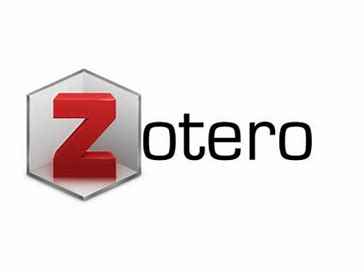Reviewer Guidelines
Aqwal: Journal of Quran and Hadis Studies relies on the peer review process to uphold the quality and validity of articles that are published. All articles submitted to Aqwal will be peer-reviewed. Aqwal adheres to a double-blind peer-review process that is rapid and fair and also ensures the high quality of articles published. In so doing, Aqwal needs reviewers who can provide insightful and helpful comments on submitted manuscripts with a turnaround time of about 4-5 weeks. Maintaining Aqwal as a scientific journal of high quality depends on reviewers with a high level of expertise and the ability to be objective, fair, and insightful in their evaluation of manuscripts. This statement is based on the COPE (Committee on Publication Ethics) Code of Conduct and Best Practice Ethical Guidelines for Peer Reviewers.
Before you start
Before you accept or decline an invitation to review, consider the following questions:
- Does the article match your area of expertise? Only accept if you feel you can provide a high-quality review;
- Respond to the invitation as soon as you can – a delay in your decision slows down the review process, whether you agree to review or not. If you decline the invitation, provide suggestions for alternative reviewers. If you accept, you must treat the materials you receive as confidential documents. This means you can’t share them with anyone without prior authorization from the editor. Since peer review is confidential, you also must not share information about the review with anyone without permission from the editors and authors;
- Consider the article from your perspective, and ensure that the manuscript is of high quality and original work;
- Reviewing the manuscript critically but constructively and preparing detailed comments about the manuscript to help authors improve their work;
- Reviewing multiple versions of a manuscript as necessary reporting possible research misconduct, and informing the editor if you find the assigned manuscript is under consideration in any other publication;
- Writing a commentary for publication related to the reviewed manuscript, and writing a review report in Indonesian or English only. Your review report will help the editor decide whether or not to publish the article;
- Giving your overall opinion and general observations of the article is essential. Your comments should be courteous and constructive, and they should not include any personal remarks or personal details, including your name. Providing insight into any deficiencies is important;
- You should explain and support your judgment. Then, editors and authors can fully understand the reasoning behind your comments;
- You should indicate whether your comments are your own opinion or are reflected by the data;
- Making recommendations to the editor regarding the suitability of the manuscript for publication in the journal, your recommendation means a lot to us.
- When you make a recommendation, it is worth considering the categories the editor most likely uses for classifying the article. You will have five possible options for any paper:
- Accept Submission(i.e. no need for any revision);
b. Revisions Required (i.e. accepted if the author makes the requested minor revisions);
c. Resubmit for Review (i.e. paper will be sent out for another peer review round);
d. Resubmit Elsewhere (i.e. found paper discrepancies with the scope of the journal);
e. Decline Submission (i.e. if the manuscript is not sufficiently developed for publication);
f. See comments (i.e. if the reviewer cannot choose from any of the above).
- The editor will weigh all views and may call for a third opinion or ask the author for a revised paper before making a decision.
Your review report
Your review will help the editor decide whether or not to publish the article. Giving your overall opinion and general observations of the article is essential. Your comments should be courteous and constructive, and should not include any personal remarks, but not your personal details. Providing insight into any deficiencies is important. You should explain and support your judgment so that both editors and authors are able to fully understand the reasoning behind your comments. You should indicate whether your comments are your own opinion or are reflected by the data.
Reviewer Guidelines
Reviewers of Aqwal: Journal of Quran and Hadis Studies are asked to consider the following points during their evaluation:
- Does the paper have clear aims, objectives, and research questions that can be achieved within the scope of a Aqwal: Journal of Quran and Hadis Studies paper?
- Does the paper make a contribution to knowledge?
- Is the work suitably grounded in the literature to justify its contribution and frame the analysis and evaluation?
- Is the research and evaluation methodology justified, clear, and appropriate? (including ethical considerations and approval where appropriate)
- Does the analysis and evaluation have a clear flow and logical argument?
- Does the analysis and evaluation link to an appropriate discussion and conclusion?
- Is it presented in a way that is suitable for the Jurnal Ilmiah Peuradeun audience?
Here is a list of items that need to be reviewed:
- Originality;
- The novelty of the topic (are the main issues discussed in the paper very important, unique, and novelty?;
- Scientific reliability (does the aims, objectives, novelty, and significance of the study clear? Then, clarity of research gaps, use of theory or framework, and previous research);
- Methodology (relevance, clarity of the methodology or problem-solving approach used, and reproducibility);
- Data presentation and interpretation the research findings are clearly and comprehensibly presented. The authors conducted data presentation and interpretation validly and reasonably;
- Relevance between methods, results, and discussion, as well as depth of discussion;
- Conclusions (the conclusions must be clear and comprehensive, especially in terms of the author’s critical evaluation of research findings);
- A valuable contribution to science. Ideally, interesting to researchers in other related disciplines;
- Structure of the article submitted and its relevance to authors’ guidelines;
- The references provided to substantiate the content are relevant and up-to-date;
- Paper quality, structure, grammar, punctuation, and spelling; Ethical aspects and scientific misconduct.








